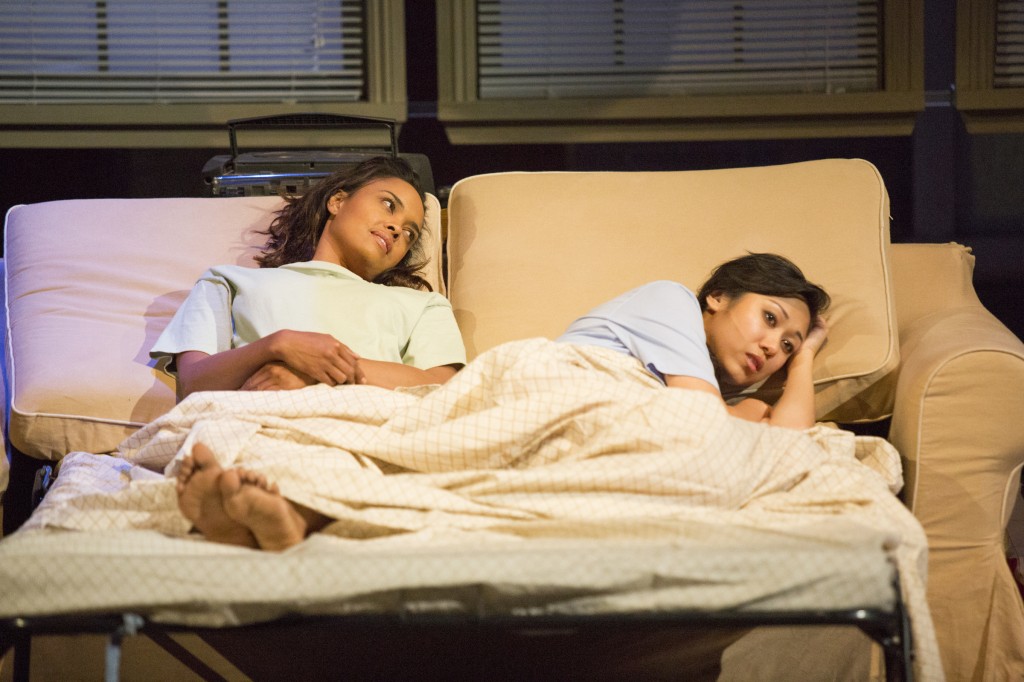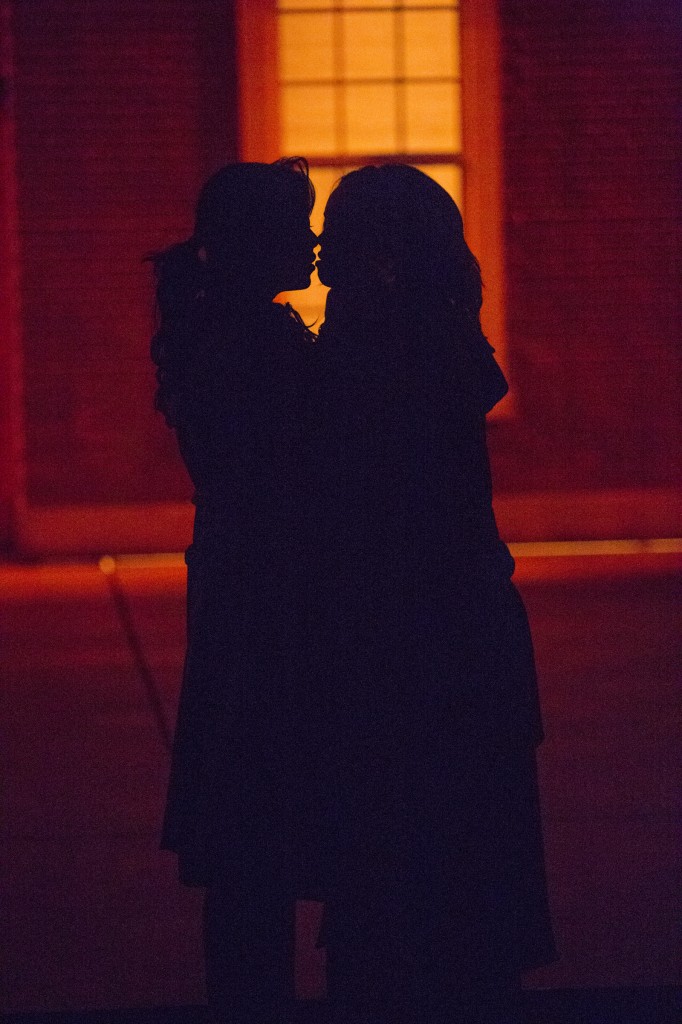Lesbian themes in theatre have never loomed large on the American firmament, perhaps because women tend to be more reserved about their homosexuality (or bisexuality) than men. Let me guess. Is it that women are instinctively more private about their sexuality than men? Is it because society as a whole is harsher on and quicker to judge women? Is it a lack of general interest? Whatever the reason, there never has been an onslaught of gay female plays to compare with the avalanche of male gay plays, largely triggered by the decimating advent of AIDS.
Of the smattering of women who have written about gay female life, perhaps none has done it as memorably as the late Jane Chambers and most enduring among her plays is Last Summer at Bluefish Cove, which managed to capture worldwide attention, including a celebrated 30-month run in a Los Angeles production starting in 1981.
Looking back on all that, it remains moot whether the play’s notoriety was the result of its openly lesbian component or simply that of its deeply human one. The answer is probably both—the lesbian aspect for its shock value at the time, and the human one for its timeless, well, humanity.
The same quandary applies to Diana Son’s Stop Kiss, a gentle, anguished and sweet story of tentative love between two young and very different women who meet almost by chance and become emotionally fused by a brutal random assault that leaves one of them in a coma.
Stop Kiss is receiving its first major Los Angeles area production at The Pasadena Playhouse (it was seen in a couple of well regarded prior productions in smaller area theatres). While Bluefish Cove (1980) and Stop Kiss (1998) belong to different eras and sensibilities, they are united in one sentiment: love and its offshoots of compassion and tenderness that overtake all other considerations, gender included. It is not so much a reflection on the unique experience of loving a person of the same sex as it is of the broader experience of loving anyone at all.
In Stop Kiss, Callie, a TV weather reporter in New York (Angela Lin, smart and brash), and Sara, a third grade teacher in the Bronx (Sharon Leal, softer, but no softie), come together when one offers to care for the other one’s cat, thanks to the intervention of a mutual friend. Neither had expected this to be more than a casual, every day transaction. Yet it delivers more than either one had imagined possible, let alone bargained for.

It is a sweet tale of self-and-mutual-discovery, its dialogue flippant and unpretentious, until it is suddenly anchored in place by that disruptive act of violence. If Son’s play is not particularly daring in form or structure, the transforming event that changes their lives is anything but ordinary. Son’s finest achievement is maintaining a fluid, light and conversational tone, while playing around with time just enough to keep the audience on its toes as she deconstructs events from back to front or from inside out. It is not an especially complex device, but it serves the action well, allowing the characters (and us) to come to terms with the revelatory events, so that the production becomes neither emotionally top-heavy nor fatally sentimental.
Stop Kiss also marks the directorial debut at the Playhouse of Seema Sueko, who joined the theatre in January as its Associate Artistic Director, after nine years as founding Executive Artistic Director of San Diego’s Mo’olelo Performing Arts Company. In this first Pasadena outing, she displays an agile mind and nimble hand at maneuvering the talented cast of actors and designers, delivering a breezy, often funny yet ultimately sobering and enriching performance.
Lin and Leal constitute the core of the action and are good at maintaining the differences that separate their personalities. The remaining roles are more utilitarian and more superficially written. Still, John Sloan and Brandon Scott are friendly and persuasive as the boyfriends who don’t quite realize they are being trounced from Callie and Sara’s lives, while Amanda Carlin (in a couple of different roles) and Jeff de Serrano (the detective investigating the assault on the two women) effectively complete the company.
Set designer David F. Weiner has created an impressive cluster of building exteriors within which Callie’s apartment is conveniently nestled. It is enough and not too much, nicely complemented by Lap Chi Chu’s lighting design and Dana Rebecca Woods’ unobtrusive costumes.

Stop Kiss is a welcome contribution to the 2014-15 season of the Playhouse, which recently also announced the February substitution of Matthew Lopez’s The Whipping Man, a most unusual Civil War story, presented jointly with South Coast Repertory, to replace a previously announced Two for the Seesaw.
This is significant, because it helps to confirm that Artistic Director Sheldon Epps’ professed desire to “celebrate diversity in many forms” on the Playhouse stage is not just words but action. The Playhouse has had an eclectic past and remains one of the area’s most architecturally exquisite theatres. It is also the area’s first producing theatre as founded by Gilmor Brown in the 1920s, with a long, checkered and feisty lifetime of great highs and even greater lows — and almost miraculous survival.
Epps deserves hefty credit for surmounting unenviable odds and such perils as Pauline never dreamed of, to restore this grand old lady to serious credibility. How better to honor the Playhouse’s astonishing past than by working so effectively to win back its future?
WHAT: Stop Kiss
WHERE: The Pasadena Playhouse, 39 So. El Molino Avenue, Pasadena CA 91101
WHEN: now through Nov 30
HOW: Tickets $45-$75, premium seating $125, available @ PasadenaPlayhouse.org or @ 626-356-7529 or in person @ the box office.
Talkback Tuesdays: Nov 11, 17 & 25 after the evening performance
Post-Show Discussion: Nov 23 after the matinee
Top image: l-r: Angela Lin and Sharon Leal in Stop Kiss at The Pasadena Playhouse. All photos by Jim Cox.
